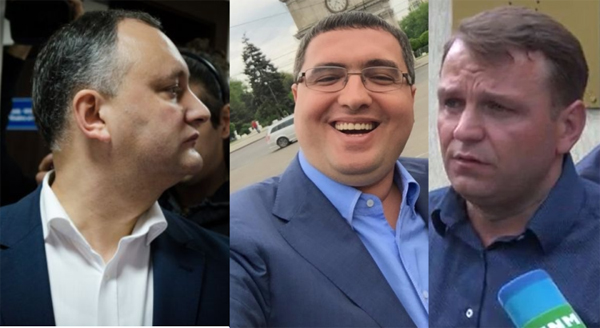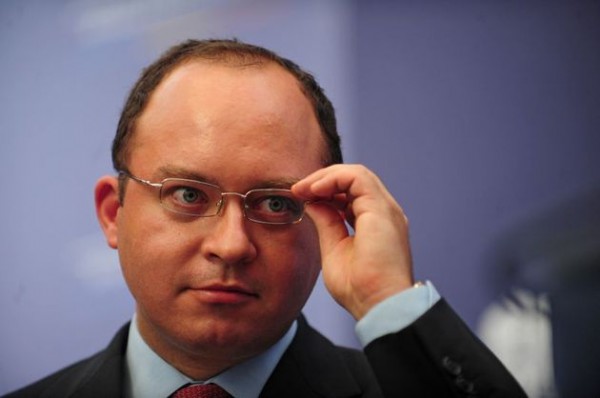The fall of the government, although it may be a possible solution to the political corruption issues in Moldova, could also mean the increase of the political instability, an element that is no stranger to the state east of the Prut river (from the revolution in 2009 the country has been subject to government collapses and early elections). The recent demonstrations and unrest could threat Moldova’s chances for European integration, as the same dynamic that led the state on the path to becoming part of the EU under the current government (oriented towards the West) is able to delay the process and to steer the state towards Russia under a new government. Besides the many problems Moldova is facing, the most painful is the temporary ban of financial assistance from foreign creditors (the International Monetary Fund, the World Bank, the European Bank for Reconstruction and Development, the Millennium Challenge Corporation)[1] happening in the context of financial-banking crisis and political instability, Chisinau losing this year funds of over 40 million euro. Signing an agreement with the International Monetary Fund represents the „bridgehead” for Moldova to get out of the collapsing process and also to activate the development process coming from within, as the country cannot count indefinitely on foreign assistance. In addition, the state’s political and social cleavage has deepened and the population continues to remain divided whether to align itself to Moscow or to the West. Any major movements directed towards Moscow would put out of the question the European integration, while on the other side any attempt to join the EU has encountered resistance from the groups aligned to Russia or the pro-Russian regions like Găgăuzia or Transnistria.

A monitoring delegation belonging to the International Monetary Fund (IMF) has just completed its documentation process in Moldova, activity that took place in the period September 22 to October 6, 2015[1], ending with the requirement of achieving as soon as possible a complete radiograph of the banking and financial sector, the adoption of financial reform, stability at the leadership level of the National Bank and the liquidation of the robbed banks.[2] It is noteworthy that the mandate of the delegation for the negotiation and signing a lending agreement for the Moldovan state by the IMF was changed, due to the resignation of the governor of the National Bank of the Republic of Moldova, into a simple documentation process.
It is necessary to review the most significant past events in the relation between Moldova and the IMF:
- in March 2013 the RofM remains without an active program of cooperation with the IMF, when the government led by Vlad Filat misses the meeting of their commitments and loses the final tranche of more than 76 million dollars of assistance agreed with the IMF in 2010 because of the social expenditures and budget deficit that were too high;
- in January 2014 the Moldovan authorities tried to negotiate with the IMF, but the process did not generate any results;
- in June 2015, when the next negotiations were planned to start over, the visit of the IMF mission is canceled due to the resignation of the former Prime Minister, Cyril Gaburici, for allegations of falsifying his high school diploma;
- during the visit of the IMF delegation in September-October 2015, it arrived in Chisinau but its mandate had to change following the resignation of Dorin Drăguţanu, the governor of the National Bank of the RofM.[3]
Since the time was completely inopportune, the NBRM governor’s resignation on the eve of the IMF delegation visit raises serious question marks (1): this decision led to changing the organization’s mandate in the RM and consequently affected the dialogue with the IMF. In this context, the donors have become more critical, especially since the previous programme was not completed and neither did the political progress laid down in the memorandum signed in 2010 become achieved.
The last parliamentary elections from November 2014 produced a small victory for the pro-European coalition and therefore pro-West. However, in May 2015, in the context of unstable political climate, endless allegations concerning the corrupt system came to the surface when $ 1 billion disappeared from the top 3 largest banks in Moldova – the amount representing 12.5% of the RM’s GDP.[4] The scandal did not only put the government under political pressure, but led to the suspension of financial aid offered to Moldova by key international institutions. In addition, the government of Valeriu Streleţ did not reconcile the population dissatisfied with the bank scandal. It can clearly be seen the inaction of the political elite in Chisinau regarding the investigation and prosecution of those responsible for the disappearance of the billion dollars from the banking system, the deliberate delay of the current leadership in terms of starting the second stage of Kroll’s investigation and the lack of transparency regarding the contract signed with the National Bank of the Republic of Moldova with the respective American company hired to conduct the initial stage of investigations on the financial irregularities (Kroll).[5] All of these indicate the facade action taken by the authorities, meant only to temper the spirits of the protestant spirits and further on, it raises again big question marks. (2)
The social unrest in Moldova is not a new theme, but this time it may represent a serious destabilization for the small country that has an important strategic position (being at the confluence of East and West). On October 4th, 2015, about 10 to 12 thousand protesters gathered in the Great National Assembly Square to start the 5th week of protests against the Moldovan government and to call for early elections.[6] The political paralysis and the social dissent constituted the reality of the state in the last 5 years, so that a collapsing government after demonstrations would not be unprecedented in Moldova. The Civic Platform „Justice and Truth” (Platforma DA) managed to make the protests „permanent” by installing tents in front of the Government, organizing large-scale protests in the city center every Sunday[7] in order to request the prosecution of those guilty of embezzling the billion dollars, plus the investigation of corruption cases, the dissolution of the Parliament, the resignation of the president and other government officials and early elections[8]. The problem that looms in this case is that the government’s resignation could mean a threat to the stability of Moldova in that the pro-Russian groups will certainly take advantage of this opportunity. These groups have already organized protests in front of the Parliament[9]. In the event that a new pro-European alliance will not be soon created, the pro-Russian parties and their supporters in Moscow are the ones who will benefit the most from the government’s resignation and early elections. (3)
Following the above mentioned steps, (1) – (2) – (3), we will understand the painting that portrays best the reality of the state east of the Prut river: in the path towards the European Union Moldova goes on a thin rope over a cliff, risking at any time to fall into the abyss, namely in the „rescuing” arms of Russia. We will conclude by reiterating the root of the problem, namely the vicious circle Moldova finds itself in, a boycott from within oriented against any plans to restart the development of reforms and the rule of law. If the strategy that will be developed and the driving force aimed at adopting a transparent and comprehensive Occidental path will not be powerful enough, there is a gray and undesirable scenario that will occur, in which Moldova could fall in the already prepared and „rescuing” arms of Russia.
Author: Irina Iacovoiu
Bibliography
1) MEP: After IMF and World Bank, the EU could stop the financial support offered to Moldova, article published on Jurnal.md on June 19th, 2015, link http://jurnal.md/en/economic/2015/6/19/mep-after-imf-and-world-bank-the-eu-could-stop-the-financial-support-offered-to-moldova/, accessed on October, 16th, 2015;
2) Petrişor Peiu, Relația Republicii Moldova (RM) cu Fondul Monetar Internațional (FMgI) – o perspectivă după vizita delegaţiei FMI, article published on October 8th, 2015 by FUMN, link http://fumn.eu/en/relatia-republicii-moldovarm-cu-fondul-monetar-international-fmi-o-perspectiva-dupa-vizita-delegatiei-fmi/, accessed on October 16th, 2015;
3) MOLDOVA ŞI FMI, INFORMAŢIE SUCCINTĂ, published on the International Monetary Fund – the Permanent agency in the Republic of Moldova, link http://www.imf.md/imfmoldrom.html, accessed on October 16th, 2015;
4) Banca Naţională a Moldovei: Începe a doua fază a investigației companiei Kroll, article published on Pulika.md on October 8th, 2015, link http://www.publika.md/banca-nationala-a-moldovei-incepe-a-doua-faza-a-investigatiei-companiei-kroll-_2418221.html, accessed on October 16th, 2015
5) How Unrest in Moldova Is Different This Time, published by Stratfor Global Intelligence on October 7th, 2015, link https://www.stratfor.com/analysis/how-unrest-moldova-different-time, accessed on October 16th, 2015
[1] MEP: After IMF and World Bank, the EU could stop the financial support offered to Moldov, article published on Jurnal.md on June 19th, 2015, link http://jurnal.md/en/economic/2015/6/19/mep-after-imf-and-world-bank-the-eu-could-stop-the-financial-support-offered-to-moldova/, accessed on October, 16th, 2015;
[2] Petrişor Peiu, Relația Republicii Moldova (RM) cu Fondul Monetar Internațional (FMgI) – o perspectivă după vizita delegaţiei FMI, article published on October 8th, 2015 by FUMN, link http://fumn.eu/en/relatia-republicii-moldovarm-cu-fondul-monetar-international-fmi-o-perspectiva-dupa-vizita-delegatiei-fmi/, accessed on October 16th, 2015;
[3] Ibidem
[4] MOLDOVA ŞI FMI, INFORMAŢIE SUCCINTĂ, published on the International Monetary Fund – the Permanent agency in the Republic of Moldova, link http://www.imf.md/imfmoldrom.html, accessed on October 16th, 2015;
[5] Petrişor Peiu, Relația Republicii Moldova (RM) cu Fondul Monetar Internațional (FMgI) – o perspectivă după vizita delegaţiei FMI, article published on October 8th, 2015 by FUMN, link http://fumn.eu/en/relatia-republicii-moldovarm-cu-fondul-monetar-international-fmi-o-perspectiva-dupa-vizita-delegatiei-fmi/, accessed on October 16th, 2015;
[5] Banca Naţională a Moldovei: Începe a doua fază a investigației companiei Kroll, article published on Pulika.md on October 8th, 2015, link http://www.publika.md/banca-nationala-a-moldovei-incepe-a-doua-faza-a-investigatiei-companiei-kroll-_2418221.html, accessed on October 16th, 2015
[6] How Unrest in Moldova Is Different This Time, published by Stratfor Global Intelligence on October 7th, 2015, link https://www.stratfor.com/analysis/how-unrest-moldova-different-time, accessed on October 16th, 2015
[7] Ibidem
[8] Ibidem
[9] Ibidem

